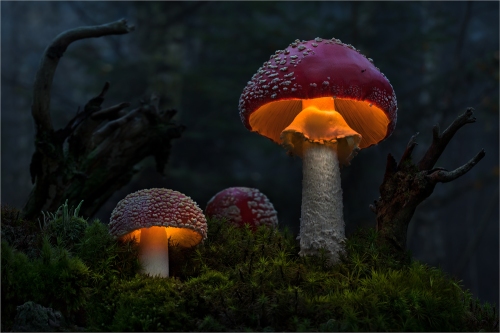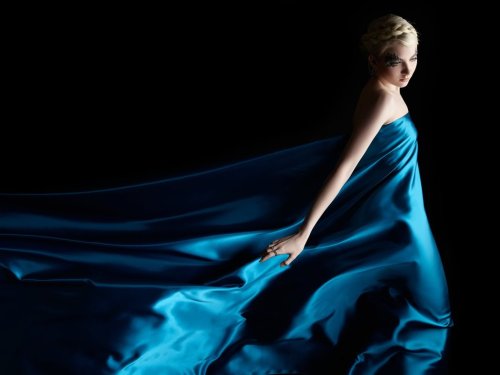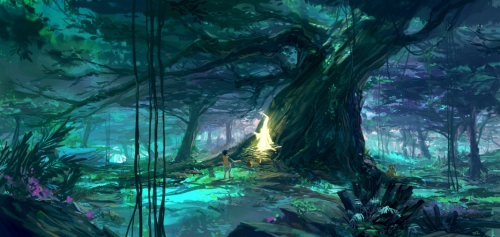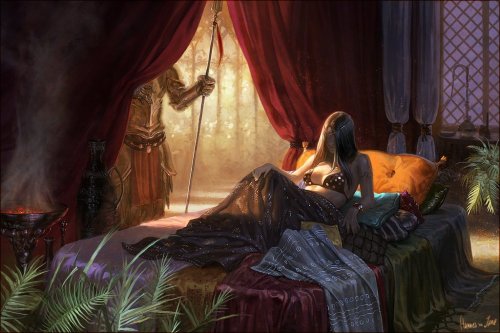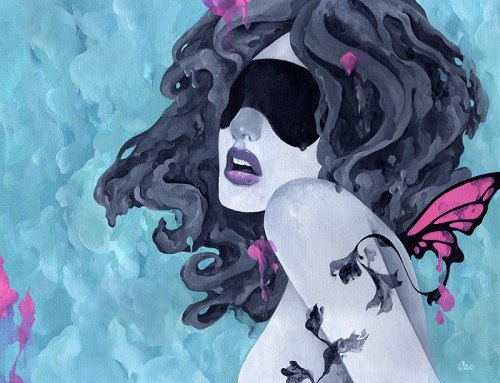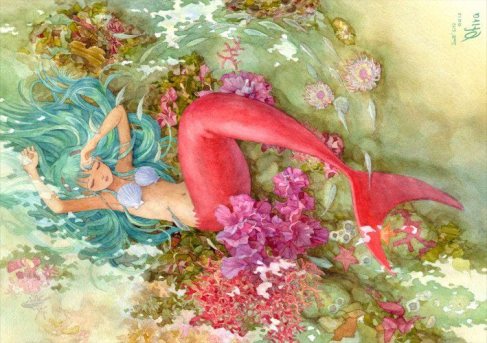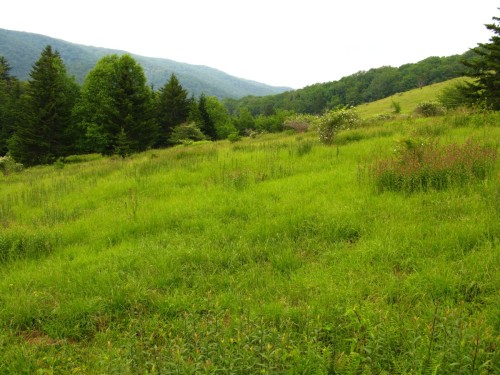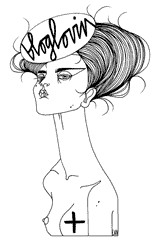Because Paula Blake is planning something secret, she feels she must account for her every move and action, overcompensating in her daily chores and agreeing to whatever her husband and children demand. Of course I’ll pick up the dry cleaning, drive the kids, swing by the drugstore. This is where the murderer always screws up in a movie, way too accommodating, too much information. The guilty one always has trouble maintaining direct eye contact.
“Of course I will take you and your friends to the movies,” she tells Erin late one afternoon. “But do you think her mom can drive you home? I’m taking your brother to a sleepover too.” She is doing it again, talking too much.
“Where are you going?” Erin asks, mouth sullen and sarcastic as it has been since her thirteenth birthday two years ago.
“Out with a friend,” Paula says, forcing herself to make eye contact, the rest of the story she has practiced for days ready to roll. She’s someone I work with, someone going through a really hard time, someone brand-new to the area, knows no one, really needs a friend.
But her daughter never looks up from the glossy magazine spread before her, engrossed in yet another drama about a teen star lost to drugs and wild nights.
Her husband doesn’t even ask her new friend’s name or where she moved from, yet the answer is poised and waiting on her tongue. Tonya Matthews from Phoenix, Arizona. He is glued to the latest issue of Our Domestic Wildlife—his own newsletter to the neighborhood about various sightings of wild and possibly dangerous creatures, coyotes, raccoons, bats. Their message box is regularly filled with detailed sightings of raccoons acting funny in daylight or reports of missing cats. Then there’s the occasional giggling kid faking a deep voice to report a kangaroo or rhino. She married a reserved and responsible banker who now fancies himself a kind of watchdog Crocodile Dundee. They are both seeking interests outside their lackluster marriage. His are all about threat and encroachment, being on the defense, and hers are about human contact, a craving for warmth like one of the bats her husband fears might find its way into their attic.
Her silky legs burn as if shamed where she has slathered lavender body lotion whipped as light as something you might eat. And the new silk panties, bought earlier in the day, feel heavy around her hips. But it is not enough to thwart the thought of what lies ahead, the consummation of all those notes and looks exchanged with the sales rep on the second floor during weeks at work, that one time in the stairwell—hard thrust of a kiss interrupted by the heavy door and footsteps two floors up—when the fantasy became enough of a reality to lead to this date. They have been careful, and the paper trail is slight—unsigned suggestive notes with penciled times and places—all neatly rolled like tiny scrolls and saved in the toe of the heavy wool ski socks in the far corner of her underwear drawer, where heavier, far more substantial pairs of underwear than what she is wearing cover the surface. It all feels as safe as it can be because he has a family too. He has just as much to lose as she does.
And now she looks around to see the table filled with cartons of Chinese food from last night and cereal boxes from the morning, and the television blares from the other room. Her son is anxious to get to his sleepover; her daughter has painted her toenails, and the fumes of the purple enamel fill the air. Her husband is studying a map showing the progression of killer bees up the coast. He speaks of them like hated relatives who are determined to drop in, whether you want them to or not. Their arrival is as inevitable as all the other predicted disasters that will wreak havoc on human life.
“Where did you say you’ve got to go?” her husband asks, and she immediately jumps to her creation. Tonya Matthews, Phoenix, Arizona, new to the area, just divorced. Her palms are sweating, and she is glad she is wearing a turtleneck to hide the nervous splotches on her chest. She won’t be wearing it later. She will slip it off in the darkness of the car after she takes Gregory to the sleepover and Erin and her friend to the cinema. Under the turtleneck she is wearing a thin silk camisole, also purchased that afternoon at a pricey boutique she had never been in before, a place the size of a closet where individual lingerie items hang separately on the wall like art. A young girl, sleek, pierced, and polished, gave a cool nod of approval when she leaned in to look at the camisole. Paula finally chose the black one after debating between it and the peacock blue. Maybe she will get the blue next time, already hoping that this new part of her life will remain. Instead of the turtleneck, she will wear a loose cashmere cardigan that slides from one shoulder when she inclines her head inquisitively. It will come off easily, leaving only the camisole between them in those first awkward seconds. She tilts her head as she has practiced, and with that thought all others disappear, and now she doesn’t know what has even been asked of her. Her heart beats a little too fast. She once failed a polygraph test for this reason. She had never—would never—shoot heroin, but her pulse had raced with the memory of someone she knew who had. Did she do drugs? Her answer was no, but her mind had taken her elsewhere, panicked when she remembered the boy who gave her a ride home from a high school party with his head thrown back and teeth gritted, arm tied off with a large rubber band while a friend loomed overhead to inject him, one bloody needle already on the littered floor.
You can’t afford to let your mind wander in a polygraph test—or in life, as now, when once again she finds herself looking at her husband with no idea of what he has just said. Her ability to hold eye contact is waning, the light out the window waning, but the desire that has built all these weeks is determined to linger, flickering like a candle under labored breath. Somewhere, her husband says, between their house and the interstate, are several packs of coyotes, their little dens tucked away in brush and fallen trees. The coyote is a creature that often remains monogamous. The big bumbling mouthful of a word lingers there, a pause that lasts too long before he continues with his report. He heard the coyotes last night, so this is a good time to get the newsletter out, a good time to remind people to bring their pets indoors. Dusk is when they come out, same as the bats, most likely rabid.
The kids are doing what they call creepy crawling. Their leader picked the term up from the book Helter Skelter. They slip in and out behind trees and bushes, surveying houses, peeping in windows, finding windows and doors ajar or unlocked. Their leader is a badly wounded boy in need of wounding others, and so he frightens them, holds them enthralled with his stories of violence or murder. They might not believe all he says, but they believe enough to know he is capable of bad things. As frightening as it is to be with him, it is more frightening not to be—to be on the outside and thus a potential victim.
To the kids he looks tough with his tongue ring and tattoos, his mouth tight and drawn by a bitterness rarely seen on such a young face, some vicious word always coiled on his tongue and ready to strike those who least expect it—though he has to be careful when bagging groceries at Food Lion; he has been reprimanded twice for making sarcastic remarks to elderly shoppers, things like You sure you need these cookies, fat granny? He has been told he will be fired the next time he is disrespectful, which is fine with him. He doesn’t give a shit what any of them says. Dirt cakes the soles of his feet, like calloused hooves, as he stands on the asphalt in front of the bowling alley, smoking, guzzling, or ingesting whatever gifts his flock of disciples brings to him. He likes to make and hold eye contact until people grow nervous.
When Agnes Hayes sees the boy bagging groceries in the market, her heart surges with pity, his complexion blotched and infected, hair long and oily. “Don’t I know you?” she asks, but he doesn’t even look up, his arms all inked with reptiles and knives and what looks like a religious symbol. Now she has spent the day trying to place him. She taught so many of them, but their names and faces run together. In the three years since retirement, she has missed them more than she ever dreamed. Some days she even drives her car and parks near the high school to watch them, to catch a glimpse of all that energy and to once again feel it in her own pulse. She still drives Edwin’s copper-colored Electra and has since he died almost two years ago. She would never have retired had she seen his death coming, and with it an end to all their plans about where they would go and what they would do. One day she was complaining about plastic golf balls strewn all over the living room, and the next she was calling 911, knowing even as she dialed and begged for someone to please help that it was too late.
The school is built on the same land where she went to school. She once practiced there, her clarinet held in young hands while she stepped high with the marching band. Edwin’s cigar is there in the ashtray, stinking as always, only now she loves the stink, can’t get enough of it, wishes that she had never complained and made him go out to the garage or down to the basement to smoke. She wishes he were sitting there beside her, ringed in smoke. Their son, Preston, is clear across the country, barely in touch.
Sometimes creepy crawling involves only the car, cruising slowly through a driveway, headlights turned off, gravel crunching. There are lots of dogs. Lots of sensor lights. Lots of security systems, or at least signs saying there are systems. The boy trusts nothing and no one. He believes in jiggling knobs and trying windows. When asked one time, by a guidance counselor feigning compassion and concern, what he believed in, he said, “Not a goddamn thing,” but of course he did. Anyone drawing breath believes in something, even if it is only that life sucks and there’s no reason to live. Tonight he has announced that it is Lauren’s turn to prove herself. She is a pretty girl behind the wall of heavy black makeup and black studded clothing. She wants out of the car, but she owes him fifty dollars. He makes it sound like if she doesn’t pay it back soon he’ll take it out in sex. She is only here to get back at the boy she loved enough to do everything he asked. She wants him to worry about her, to want her, to think about that night at the campground the way she does.
The leader reminds her often that he was there for her when no one else was. He listened to her story about the squeaky-clean asshole boyfriend, feeding her sips of cheap wine and stroking her dyed black hair the whole time she cried and talked and later reeled and heaved on all fours in a roadside ditch.
“He’s an asswipe,” the boy had said. “He used you.” And then later when she woke just before dawn with her head pounding and her body filled with the sick knowledge that she had to go home and face her parents, he reminded her again how much she needed him, couldn’t survive without him. “I didn’t leave you,” he said. “Could’ve easily fucked you and didn’t.”
And now she is here, and the boy who broke her heart is out with someone else or maybe just eating dinner with his parents and talking about where he might choose to go to school. He is a boy who always smells clean, even right off the track where he runs long-distance, his thigh muscles like hard ropes, his lungs healthy and strong. He might be at the movies, and she wishes she were there too—the darkness, the popcorn. She wishes she were anywhere else. She had wanted her parents to restrict her after that night, to say she couldn’t go anywhere for weeks and weeks, but they did something so much worse; they said how disappointed they were, that they had given up, how she would have to work really hard to regain their trust, and by trust it seems they meant love.
The leader is talking about how he hates their old math teacher. “And I know where she lives too.” He circles the block, drives slowly past a neat gray colonial with a bright red door, the big Electra parked in the drive. “What’s the magic word?” he mimics in a high Southern voice and reaches over to grab Lauren’s thigh, then inches up, gripping harder as if daring her to move. He motions for her to unzip her jeans, wanting her to just sit there that way, silver chain from her navel grazing the thin strip of nylon that covers her. Lower, he says, even though there is a boy in the backseat hearing every word. She feels cold but doesn’t say a word. Her shoes and jacket and purse are locked in the trunk of his car. “For safekeeping,” he said. She is about to readjust the V of denim when he swings the car off the side of the road behind a tall hedge of lagustrum, where they are partially hidden but can still see the house. “Like this,” he says and tugs, a seam ripping, and then he slides across the seat toward her, his mouth hard on hers as he forces her hand to his own zipper. The boy in the backseat lights a cigarette, and she focuses on that, the sound, the smell; she can hear the paper burn.
Erin and her friend, Tina, sit in the backseat, and Gregory is in front with his Power Ranger sleeping bag rolled up at his feet. Paula will drop him off at the party and then go to the cinema, and then she will still have time to sit and collect herself before driving seven miles down the interstate to the Days Inn, where he will be waiting. The children have said that this car—their dad’s—smells like old farts and jelly beans. They say he saves up all day at the bank and then rips all the way home. Gregory acts this out, and with each “Ewww” and laugh from the girls, he gets a little more confident and louder. He says their grandmother smells like diarrhea dipped in peppermint and their grandfather is chocolate vomick. They are having a wonderful time, mainly because it’s daring, the way he is testing Paula, the way they all are waiting for her to intervene and reprimand, but she is so distracted she forgets to be a good mother. When he turns and scrutinizes her with a mischievous look, she snaps back.
“Not acceptable, young man, and you know it,” she says, but really she is worried that they are right and that she will smell like old farts and jelly beans when she arrives at the motel. Her cell phone buzzes against her hip, and she knows that he is calling to see if they are on schedule, calling to make sure that she doesn’t stand him up again.
“Aren’t you going to answer that?” Erin says. “Who is it, Dad looking for underwear? Some lame friend in need of a heart-to-heart?” The laughing continues as Paula turns onto the street where a crowd of eight-year-olds and sleeping bags is gathered in the front yard of a small brick ranch.
“One of my lame friends, I’m sure,” she answers but with the words pictures him there in the room, maybe already undressed, a glass of wine poured. They have already said so much in their little notes that it feels not only like they have already made love but like they have done so for so long that they are already needing to think up new things to do. Her pulse races, and she slams on the brakes when Gregory screams, “Stop!”
“Pay attention, Mom,” Gregory says. “See, they’re everywhere,” and she thinks he means her lame friends, or kids at the party, but he picks up one of those little gourmet jelly beans, tosses it at his sister, and then jumps from the car. “Thanks, Mom,” he says, and Paula waves to the already frazzled-looking mother who has taken this on. Thank you, Ronald Reagan. That’s when the jelly bean frenzy started, and then after her husband said something cute and trite about sharing the desires of the president since he was now a vice president at the bank, all his workers gave him jelly beans because what else can you give someone you don’t know at all who has power and authority over you? He got all kinds of jelly beans. And now if people hear about the neighborhood wildlife, it means many more years of useless presents—coyote and raccoon and bat figurines and mugs and mugs and more mugs. She will write and send all those thank-you notes. She will take all the crap to Goodwill.
Sometimes Agnes watches television in the dark. She likes a lot of these new shows that are all about humiliating people until they confess that they are fat and need to lose weight or that they are inept workers who need to be fired or bad members of a team who need to be rejected and banished from the island. Her pug, Oliver, died not long after Edwin did, and she misses the way he used to paw and tug and make a little nest at the foot of her bed. She misses the sounds of his little snorts in the night. How could there have been a moment in life when she wished for this—the quiet, the lack of activity and noise? The clock ticks, the refrigerator hums. She could call Preston. She could give him an apology, whether or not she owes it. What she could say is that she is so sorry they misunderstood each other. Or she could call him and pretend nothing ever happened. She keeps thinking of the boy at the grocery, trying to place what year she taught him. Who were his parents? What is his name? Some children she gave things to over the years—her son’s outgrown clothes and shoes—but then she stopped, dumping it all at the church instead, because the children never acted the same afterward, and that bothered her. They never said thank you, and they never looked her in the eye, as if she had never made a difference in their lives, and that was what hurt so much when she thought of Preston, how easily he had let a few things make him forget all that she had done for him in his life. She stated the truth, is all. When Preston planned to marry Amy, she told him how people might talk about them, might call their children names.
Right after Edwin’s funeral, he called her Miss Christian Ethics, Miss Righteous Soul. He told her he wished he could stay and dig into all that ham and Jell-O but that Amy was at the Holiday Inn waiting for him. “They let dogs stay there too,” he said and lingered over the prize rod and reel of his father’s she had handed to him, only to put it back and leave. She hasn’t seen him since. Now her chest is heavy with the memory, and her head and arm and side ache.
The parking lot stretches for miles, it seems, kids everywhere in packs, snuggly couples, the occasional middle-aged, settled-looking couple Paula envies more than all the others. The Cinema Fourteen Plex looms up ahead like Oz, like a big bright fake city offering anything and everything, a smorgasbord of action and emotion as varied as the jelly bean connoisseur basket her husband’s secretary sent at Christmas, a woman Paula has so often wished would become something more. Wouldn’t that be easier?
“He’s here,” Tina says and points to where a tall skinny kid in a letter jacket is pacing along the curb. “Oh, my God. Oh, my God.”
“Puhleeze,” Erin says, sounding way too old. “Chill out. He’s just a boy.” And then they collapse in another round of laughter and are out of the car and gone. Paula’s hip is buzzing again. Buzzing and buzzing. What if it’s Gregory and the sleepover is canceled? Or he fell on the skate ramp and broke something or needs stitches and her husband can’t be found because he’s out in the woods with a flashlight looking for wildlife? Or maybe her husband really does need her. He just got a call that his mother died. Does she know where he put the Havahart trap? And when is the last time she saw their cat?
Lauren is feeling frightened. The other boy, the one from the backseat who is always quiet and refuses to talk about the bruises on his face and arms, has announced he’s leaving. He can’t do this anymore. The leader slams on the brakes and calls him a pussy. The leader says that if he leaves that’s it, no more rides, no more pot, no more anything except he’ll catch him some dark night and beat the shit out of him. “I’ll beat you worse than whatever goes on in that trash house of yours,” he says, but the boy keeps walking, and Lauren feels herself wanting to yell out for him to wait for her. She has always found him scary and disgusting, but now she admires his ability to put one foot in front of the other. He says he’s bored with it all—lame amateur shit—but she sees a fear in him as recognizable as her own. “Let him go,” she whispers. She is watching the flicker of television light in the teacher’s upstairs window. “Please. Can’t we just ride around or something?”
“Afraid you won’t get any more tonight?” he asks and leans in so close she can smell his breath, oddly sweet with Dentyne. The lost possibility of his features makes her sad, eyes you might otherwise think a beautiful shade of blue, dimple in the left cheek. He pulls a coiled rope from under the seat. “You gonna stay put, or do I need to tie you up?” She forces herself to laugh, assure him that she will stay put, but she makes the mistake of glancing at the key in the ignition, and he reaches and takes it.
She cautions herself to keep breathing, to act like she’s with him. “Next one,” she says. “I need to collect myself.”
“Well, you just collect,” he says. “I’ll be back to deal with you in a minute.” She doesn’t ask what he plans to do. His outlines of all the ways such an event might go are lengthy and varied, some of them tame and pointless and others not pretty at all. He has already said he wants to scare the hell out of the old woman, let her know what it feels like to have someone make you say please and thank you every goddamn day. The girl watches him move into the darkness, numb fingers struggling to finally zip her pants back up, to pretend that his rough fingertips never touched her there. She will get out and run. She will leave the door open and crawl through the hedge until she reaches the main road. She will call her parents, beg for their forgiveness. There is no way now to get her shoes or phone, but she moves and keeps moving. She thinks of her bed and how good it will feel to crawl between clean sheets, to stare at the faces of all the dolls collected before everything in her life seemed to go so bad. Now all the things she has been so upset about mean nothing. So what if she let the handsome, clean-smelling track star do everything he wanted to do? She liked it too, didn’t she? Not making the soccer team last year, being told on college day that she had no prayer of getting into any of the schools she had listed, most of them ones he was considering if he could run track. But losing or getting rejected—that happens to a lot of people, doesn’t it? She can still find something she’s good at, go somewhere. Right now she just wants to get home, to shower herself clean with the hottest water she can stand, to soap and scrub and wrap up in a flannel robe. She once watched her uncle skin a catfish, tearing the tight skin from the meat like an elastic suit, and she keeps thinking of the sound it made, a sound that made her want to pull her jacket close, to hide and protect her own skin. She feels that way now, only there’s nothing to pull around her, the night air much cooler than she’d thought—and she keeps thinking she hears him behind her, so she moves faster. She is almost to the main road, the busy intersection, the rows of cars heading toward the cinema. Her foot is bleeding, a sliver of glass, and she is pinned at a corner, lines upon lines of cars waiting for the light to change.
Paula’s cell phone buzzes again, and she takes a deep breath and answers. “Where are you?” he asks. She can hear the impatience, perhaps a twinge of anger, and his voice does not match the way she remembers him sounding in the stairwell. When she pictures his face or reads his tiny penciled scrawl, it’s a different voice, like it’s been dubbed.
“Almost there,” she says and tries to sound flirtatious, leaving him a promise of making up for lost time. Then she glances out her window and sees a girl she thinks she recognizes. Shirt torn and barefooted. They certainly won’t let her in the theater that way. The girl is so familiar, and then she remembers—her daughter’s school, story time in the library. But that was years ago when the girl’s hair was light brown and pulled up in a high ponytail. She knows exactly who she is. This is a girl parents caution their good girls against. She is rumored to be bulimic. She locks herself in the school bathroom and cuts her arms. She once tried to overdose on vodka and aspirin and had to have her stomach pumped. She gives blow jobs in the stairwell of the high school in exchange for drugs. She has blackened ghoulish eyes and jet black hair, silver safety pins through her eyebrows and lip. Paula has heard parents whispering about her at various school functions. They say, “Last year she was perfectly normal, and now this. She was a B student with some artistic talent and a pretty face, and now this.” She is the “Don’t” poster child of this town, the local object lesson in how quickly a child can go bad.
Agnes is trying to remember what exactly it was she said to anger Preston so. She had tried to make it complimentary, something about skin like café au lait. She had often seen black people described that way in stories, coffee and chocolates, conjuring delicious smells instead of those like the bus station or fish market across the river, which is what a lot of people might associate with black people. Her maid once used a pomade so powerful smelling Agnes had to ask that she please stop wearing it, but certainly Agnes never held that against the woman; she couldn’t help being born into a culture that thought that was the thing to do.
“Sometimes it’s not even what stupid thing you say,” Preston shouted, the vein in his forehead throbbing like it might burst. “It’s how you say it. So, so goddamned godlike.” He spit the word and shook all over, hands clenched into fists. But now she wants him to come back and be with her. She didn’t know coffee would be insulting. She is going through her phone numbers, she has it somewhere. That same day she reminded him that even the president of the United States said things like that. The president had once referred to his grandchildren as “the little brown ones,” and why is that okay and chocolate and coffee are not?
It’s your mom, she practices now. Please talk to me, Preston. She is dialing when she hears something down on her front porch. The wind? Her cat? There was a flyer in her mailbox just this evening saying how she should not leave the cat outside.
Lauren shivers as she stands there on the corner. She expects to hear his car roar up any second and wonders what she will do when that happens. She will have to tell her parents that she lost her purse, that it got stolen, and her shoes and jacket. She shudders with the thought of the boy pawing through her personal things, a picture of the track star cut from the school newspaper, a poem she was writing about the ocean, a pale pink rabbit’s foot she has carried since sixth grade when she won the school math bee with it in her pocket. The light is about to change, and she concentrates on that instead of imagining her parents’ reaction. Just once she wishes one of them would pull her close and say, “Please, tell me what’s wrong,” and then she would. She would start talking and not stop, like a dam breaking; she would tell them so many things if there were really such a thing as unconditional love. But instead they will say, “What is wrong with you? Why are you doing this to us? Do you know what people are saying about you?”
“Do you need a ride?” A woman in an old black Audi leans out the window and motions her to hurry. “I know you from school.”
She does know the woman, the mother of a girl in her class, a girl who makes good grades and doesn’t get into trouble. Not a popular girl, just a normal girl. A nice girl who smiles shyly and will let you copy her notes if you get behind. Erin from Algebra I freshman year. This is Erin’s mother.
She hears a car slowing in the lane beside her and runs to get in with the woman just as the light changes. “Thank you.”
“My daughter goes to your school,” the woman says. She is wearing a low-cut camisole with a pretty silver necklace. Her black sweater is soft and loose around her shoulders. The car smells like crayons and the woman’s cologne. “I’m sorry my car is so messy. My husband’s car, that is.” Her cell phone buzzes in the cup holder, but she ignores it. “Where are you going, sweetheart?” she asks. “It’s too chilly to be out without shoes and long sleeves.” Something in her voice brings tears to the girl’s eyes, and then her crying is uncontrollable. The woman just keeps driving, circling first the cinema and then many of the neighborhoods around the area. The girl sinks low in her seat when they pass the teacher’s house, that old Pontiac still parked behind the hedge. She can’t allow herself to imagine what he is doing, what he will do when he finds her gone. They drive out to the interstate and make a big loop, the woman patting her shoulder from time to time, telling her it’s okay, that nothing can be that bad. Every third or fourth time the woman asks for her address, but for now the girl just wants to be here in this car riding. The woman’s cell phone keeps buzzing and buzzing. Once she answers it to the loud voice of her daughter from the movie lobby saying she will need a ride home after all. “Are you mad, Mom?” the girl screams. “Is that okay?” And the woman assures her that it is okay. It is fine. She will be there. Then she answers to say she saw their cat early this morning. And then, apologizing when it rings again, she answers and says little at all, except that so much has happened, she just might not get there at all. “In fact,” she whispers, “I know I can’t get there.” And Lauren knows there is a good chance that she is part of what has happened, but the heat is blowing on her cold feet and the woman has the radio turned down low with classical music, and her eyelids are so heavy she can barely keep them open. When she was little and couldn’t sleep, her parents would sometimes put her in a warm car and drive her around. Her dad called it a “get lost” drive, and he let her make all the choices, turn here, turn there, turn there again, and then she would relax while he untangled the route and led them back home, by which time she would be nearly or already asleep. There was never any doubt that he could find the way home and that she would wake to find herself already tucked in her bed or in his arms being taken there.
Preston’s answering machine comes on, and Agnes is about to speak, but then she hears the noise again and puts down the phone. She wishes she would find Preston there—Preston and Amy, waiting to embrace her and start all over again. Preston in his letter jacket like he was all those nights she waited up for him and said, “Where have you been, young man?” And Edwin would be in the basement smoking, and Oliver would be rooting around at the foot of her bed.
Her chest is tight with the worry of it all. She swallows and opens the door. Nothing.
“Here, kitty,” she calls in a faint voice. She steps out on the stoop into the chilly air. The sky is clear overhead, a sliver of a moon. There is a car parked way down at the end of her drive, just the front bumper showing beyond the hedge. It wasn’t there when she came home. Perhaps someone had a flat or ran out of gas. She calls the cat again and hears leaves crunching around the side of the house. She waits, expecting to see it slink around the corner, but then nothing. There is more noise beyond the darkness, where she can’t see. And it is coming closer, short quick sounds, footsteps in the leaves. She is backing into the house when she thinks she sees something much larger than the cat slip around the corner near her kitchen door. She pulls her sweater close and pushes the door to, turns the dead bolt. The flyer talked about coyotes and how they have been spotted all over town.
The girl finally tells Paula where she lives, a neighborhood out of town and in the opposite direction from the motel. Paula’s cell phone beeps with yet another message, but now she ignores it. She doesn’t want to hear what he has to say now that he has had time to shape an answer to her standing him up yet again. She parks in front of a small brick ranch. The front porch is lit with a yellow bulb, all the drapes pulled closed.
“I’m happy to walk you up,” Paula says, but the girl shakes her head. She says thank you without making eye contact and then gets out, making her way across the yard in slow, careful steps. Paula waits to see if a parent comes out, but the girl slips in and recloses the door without a trace.
Paula sits there in the dark as if expecting something to happen. And then she slips off the cardigan and pulls her turtleneck over her head. The message is waiting. He might be saying this is the last time he will do this, he has wasted too much time on her already. “Why are you fucking with me?” he might ask. Or, “Who do you think you are?” The chances of him saying he understands completely and they will try again some other, better time are slim. She imagines him there in the room, bare chested and waiting, already thinking about his other options, his better options. And she imagines her own house and her return, sink full of dirty dishes, purple nail polish and Power Ranger figures everywhere. A litter box that needs scooping and clothes that need washing and an empty pantry that would have been filled had she not been out buying lingerie all day.
She saw a coyote just last week, but she didn’t report it. She was standing at the kitchen window and glanced out to see a tall, skinny shepherd mix—except just as her mind was shaping the thought about someone letting a dog run loose in the neighborhood, it came to her that this was not a dog. It was wild and fearful looking, thin and hungry, and she felt a kinship as they stood frozen, staring at each other. Everyone wants something.
The leader can see her in there, old bat, holding her chest and shaking. She looks like a puppet, her old bitch of a body jerking in time with his jiggling the knob. “I wore your fucking boy’s shirt,” he will say. “Thank you so much. That little polo fucker really helped turn my life around.” She lifts the phone and pulls the cord around the corner where he can’t see her, so he jiggles harder, leans the weight of his body against the door. “Loafers! Neckties! F in fucking math.” He creeps around and climbs high enough on a trellis to see that she is slumped down in a chair with the receiver clutched against her chest. “Say the magic word,” he says and covers his fist with his shirt before punching out the window. “Say it.”
When Paula pulls up to the theater, Erin and Tina are waiting. A tall, thin boy in a letter jacket trails alongside Tina, his hand in her hip pocket in a familiar way, and then they kiss before the girls get in the car. Paula is about to mention the girl she picked up but then thinks better of it. She wants to say things like, “Don’t you ever . . .” but the sound of her daughter’s laughter makes her think better of it.
“I can’t believe you, like, ate face in front of my mom,” Erin says, and Tina blushes and grins. She is a girl with cleavage and braces, betwixt and between.
“Jesus, Mom, let some air in this stinkhole car,” Erin laughs, and then the two girls talk over the movie and everyone they saw there as if Paula were not even present. Paula can’t stop thinking about the girl and how she came to be on that busy corner with no shoes, how she looks so different from that clean-faced little girl in a library chair, and yet she is one and the same. And what will she write and slip to her co-worker on Monday, or will she avoid him altogether and pretend nothing ever happened, that she never ventured from her own darkened den in search of excitement? She imagines the coyotes living as her husband has described, little nests under piles of brush, helpless cubs curled there waiting for the return of their mother.
“I’m sorry if I messed up your time with your lame friend,” Erin says sarcastically and then leans in close. “Really, Momsy, I am.” She air-kisses Paula and smiles a sincere thanks before turning back to her friend with a shriek of something she can’t believe she forgot to tell, something about cheating, someone getting caught with a teacher’s grade book. She has licorice twists braided and tied around her throat like a necklace, and her breath is sweet with Milk Duds.
The old woman is dead or acting dead, the recorded voice from the receiver on her chest telling her to please hang up and try her call again. It’s one of those houses where everything is in place, little useless bullshit glass things nobody wants. She looks as miserable dead as she did alive. It makes him want to trash the place, but why bother now? He didn’t kill her. He didn’t do a thing but pop out a pane of glass. He searches around and then carefully, using his shirt so as not to leave a print, takes a golf ball from the basket beside the fireplace and places it down in the broken glass. Television is too big to lift, no purse in sight, not even a liquor cabinet. She gives him the creeps, and so do all the people looking out from portraits and photographs. He’ll tell the girl that he just scared the old bitch, threatened to tie her up and put a bullet in her head until she cried and begged for his mercy and forgiveness. He’ll say he left her alive and grateful.
The moon is high in the bright clear sky when Paula ventures outside to look for their cat. She pulls her sweater close and steps away from the light of the house, the woods around her spreading into darkness. Her husband is sleeping, and Erin is on the phone. There were no messages other than the one on her cell phone, still trapped there and waiting. She hears a distant siren, the wind in the trees, the bass beat from a passing car. Please, she thinks. Please. She is about to go inside for a flashlight when she hears the familiar bell and then sees the cat slinking up from the dark woods, her manner cool and unaffected
